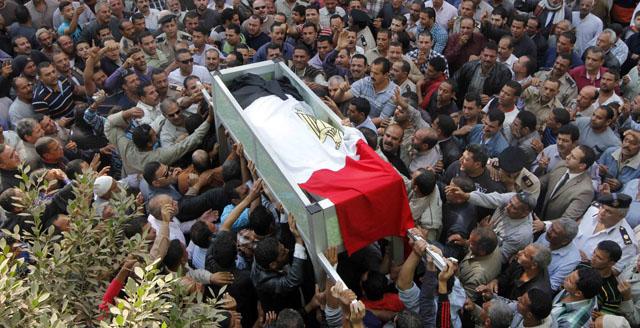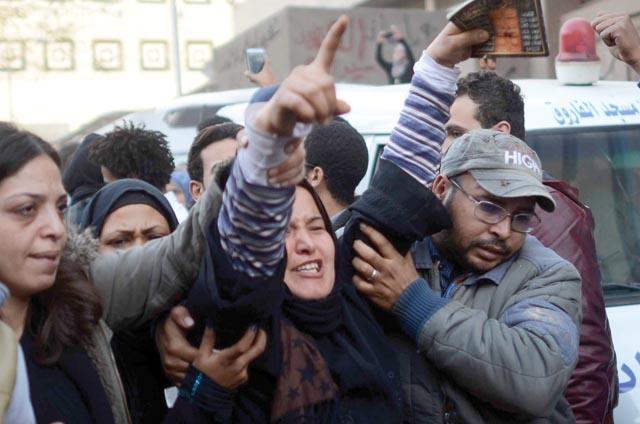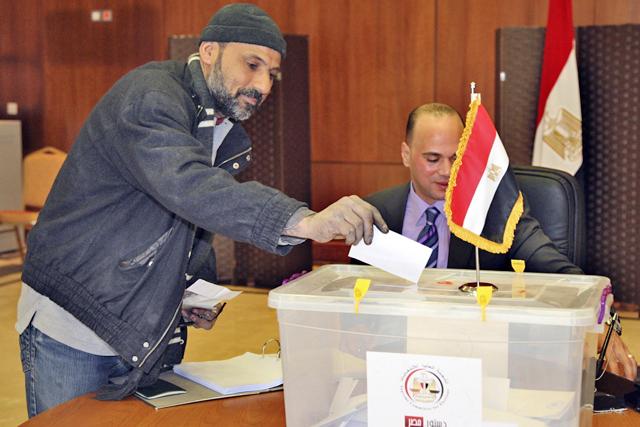You are here
Egypt police general killed in Cairo campus blasts
By AFP - Apr 02,2014 - Last updated at Apr 02,2014

CAIRO — Two bombs targeting security posts near Cairo University exploded in quick succession Wednesday killing a police general, followed by a third blast as police and journalists gathered at the scene.
Witnesses said the blasts sent up a cloud of smoke and dust near the campus, the scene of repeated clashes in the past few months between Islamist students and police.
The third bomb struck close to the main gates, where police investigators and journalists had gathered, causing no casualties.
The bombings were the latest in a spate of attacks against the security forces since the army overthrew elected Islamist president Mohamed Morsi last July.
They came less than a week after the army chief who toppled Morsi, Abdel Fattah Al Sisi, said he was leaving the military to stand in a presidential election set for May.
A fourth bomb placed in a car parked near the university was defused, security officials and state television said.
The interior ministry identified the slain officer as Brigadier General Tarek Al Mergawi.
An assistant interior minister, Major General Abdel Raouf Al Serafi, and four other policemen were wounded.
“I was waiting for the bus when I heard two explosions. There was dust in the air and policemen were screaming,” said a witness, Sakta Mostafa.
A police general at the scene told AFP that the bombs were concealed in a tree between two small police posts.
A Cairo University student said he ran out of the campus after hearing the blasts.
“I found a lifeless man in plain clothes and a policeman bleeding from his leg,” said the student, Amr Adel.
A senior detective, Mergawi would have been in civilian clothes.
Cloud of smoke
Amateur footage posted on an Egyptian newspaper’s website showed policemen running out from a cloud of smoke and dust sent up by the first explosion.
The second bomb went off moments later.
Interim Prime Minister Ibrahim Mahlab led Mergawi’s funeral procession, as policemen carried the coffin draped in a red shroud.
The government says militants have killed almost 500 people, most of them policemen and soldiers, in attacks since Morsi’s overthrow.
Most of the attacks have taken place in the lawless Sinai Peninsula but the jihadists have increasingly targeted police in the capital and in the Nile Delta to its north.
The government has blamed most of the violence on Morsi’s Muslim Brotherhood, which it designated a terror group late last year even though the deadliest attacks have all been claimed by Al Qaeda-inspired Ansar Beit Al Maqdis (Partisans of Jerusalem) group, which is based in the Sinai.
The Brotherhood condemned the latest bombings, as it has previous attacks on the security forces, insisting it remained committed to peaceful protest.
It called for an investigation, urging people to “refrain from making accusations without evidence”.
“Such acts will not deter us from continuing our peaceful march to achieve the objectives of our legitimate revolution,” it said.
Even though Morsi and most of its top leadership are in jail, the Brotherhood has vowed to keep up its campaign for the reinstatement of Egypt’s only freely elected president.
More than 1,400 people, mostly Islamists, have been killed since Morsi’s overthrow.
Some of the Brotherhood’s top leaders have sought refuge in London, where British Prime Minister David Cameron has ordered a probe into the group’s activities.
Police have scored some successes in their fight against the jihadists, killing and capturing members of two major cells in the Nile Delta over the past two months.
One of the cells, belonging to Ansar Beit Al Maqdis, was implicated in a car bombing at Cairo police headquarters in January.
Related Articles
A bomb on a train in Egypt killed four people including two policemen, officials said Thursday, while blasts in the Cairo metro and near a presidential palace wounded several others.
Egypt Sunday announced early presidential election likely to anoint the general who overthrew Islamist president Mohamed Morsi, as the country reeled after a weekend of violence killed dozens of people.
Courts on Thursday jailed 113 supporters of Egypt’s deposed Islamist president Mohamed Morsi to up to three years for taking part in unauthorised and violent protests, judicial sources said.

















